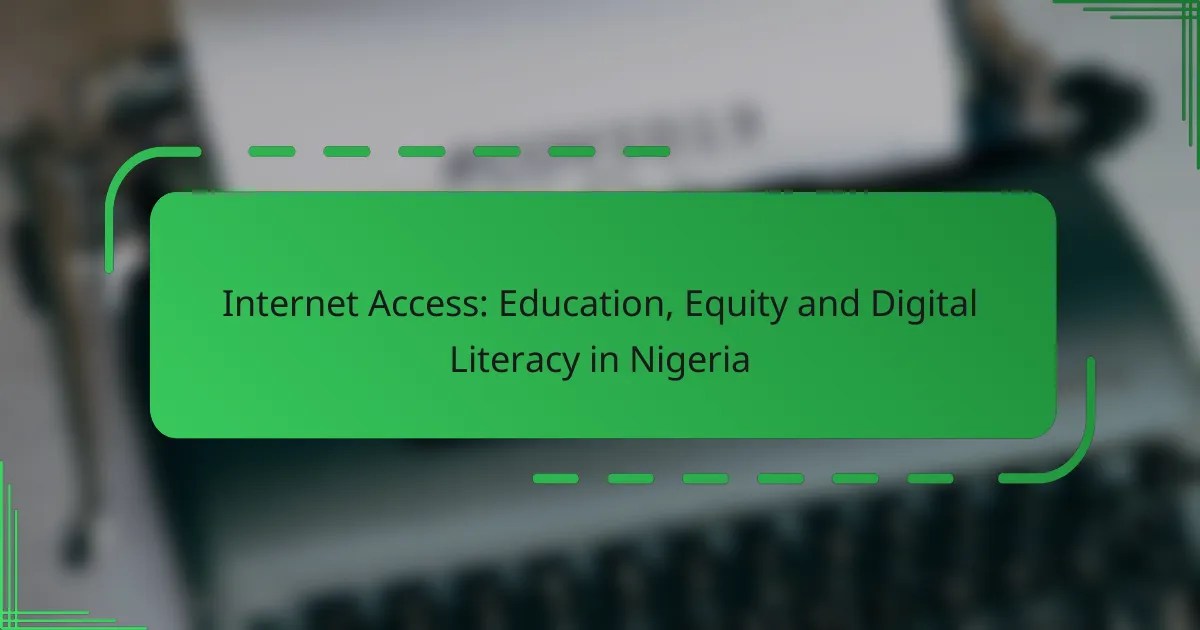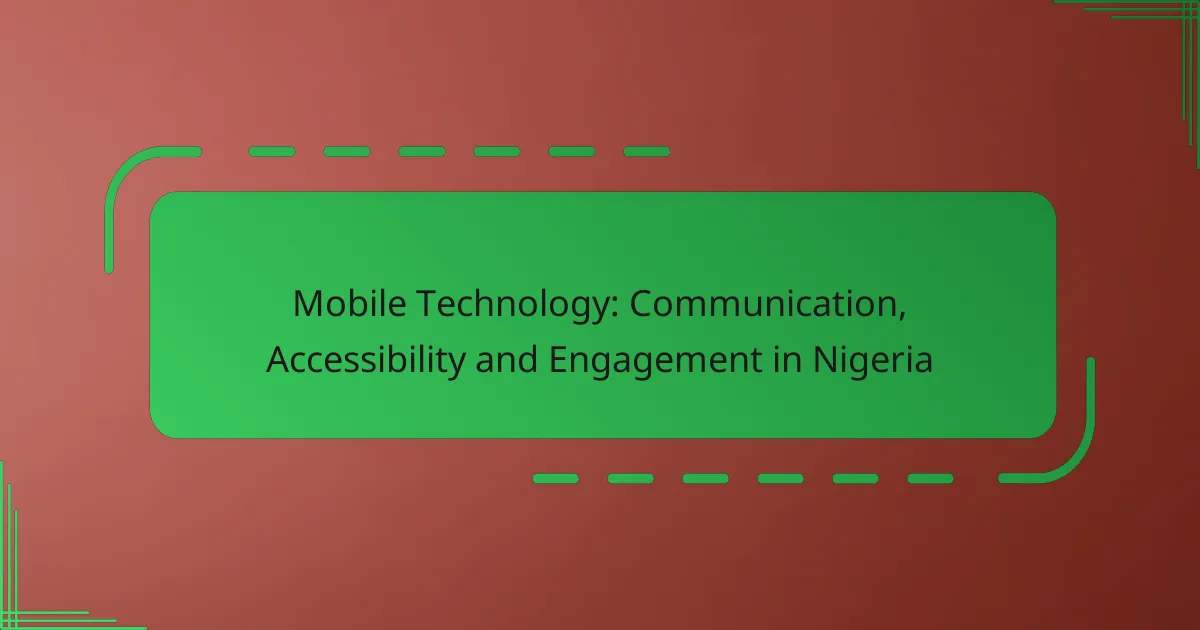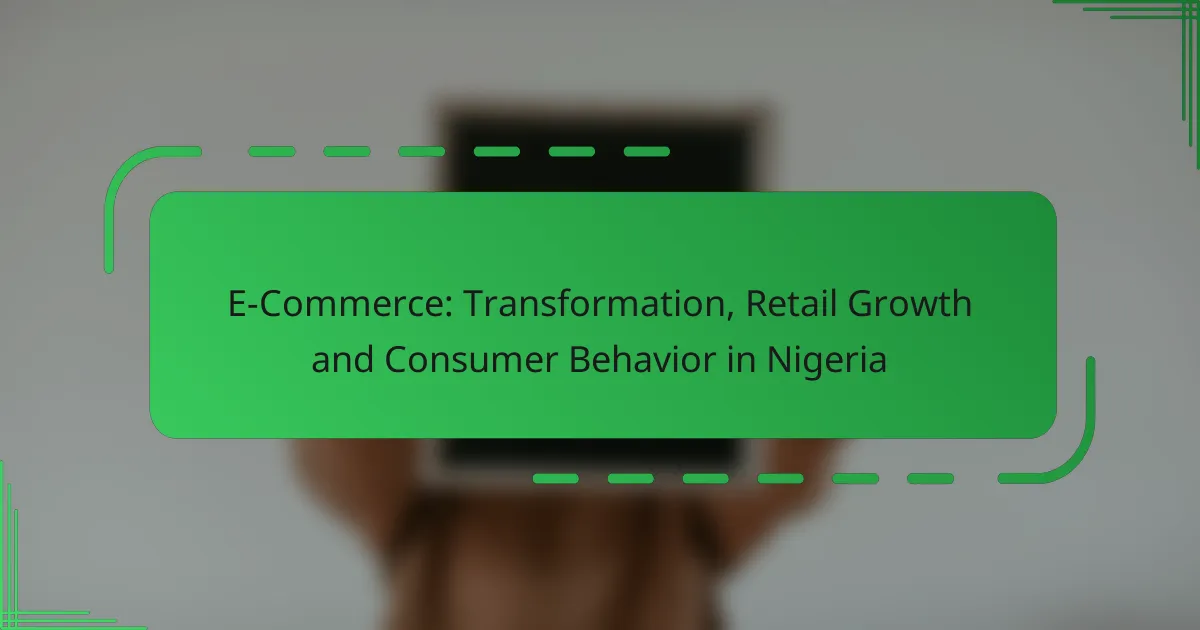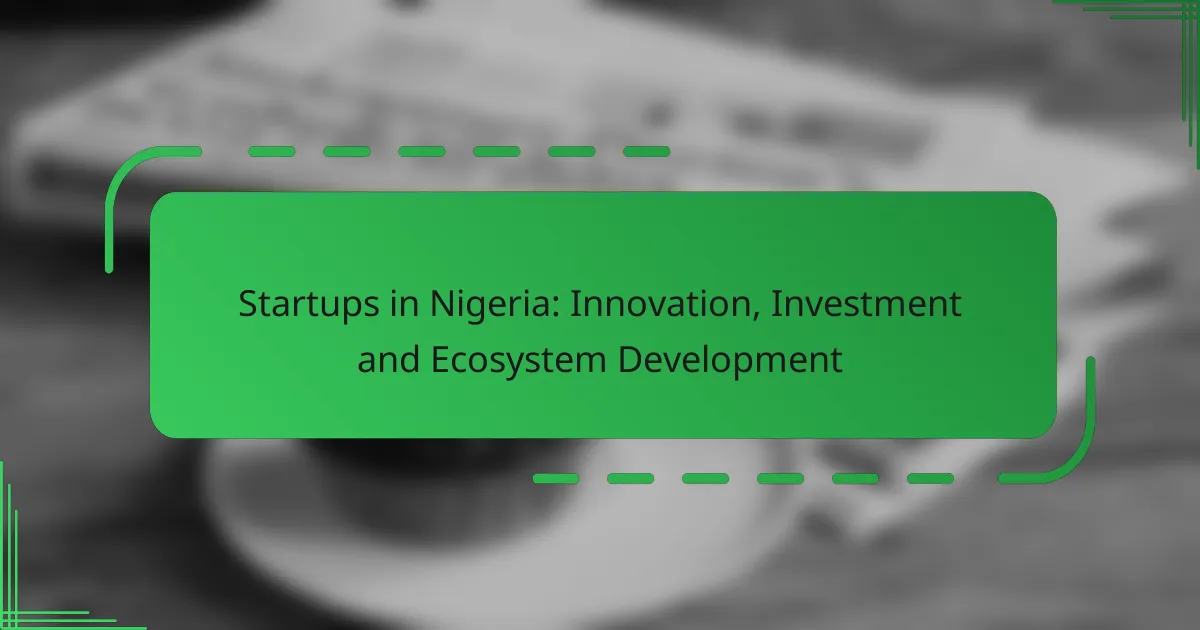Internet access plays a crucial role in enhancing education in Nigeria by equipping students and educators with vital resources for learning and collaboration. However, challenges such as inadequate infrastructure, high costs, and geographical disparities hinder widespread connectivity, impacting educational outcomes and digital literacy. Addressing these barriers through community engagement and educational reforms is essential for fostering a more equitable digital landscape.
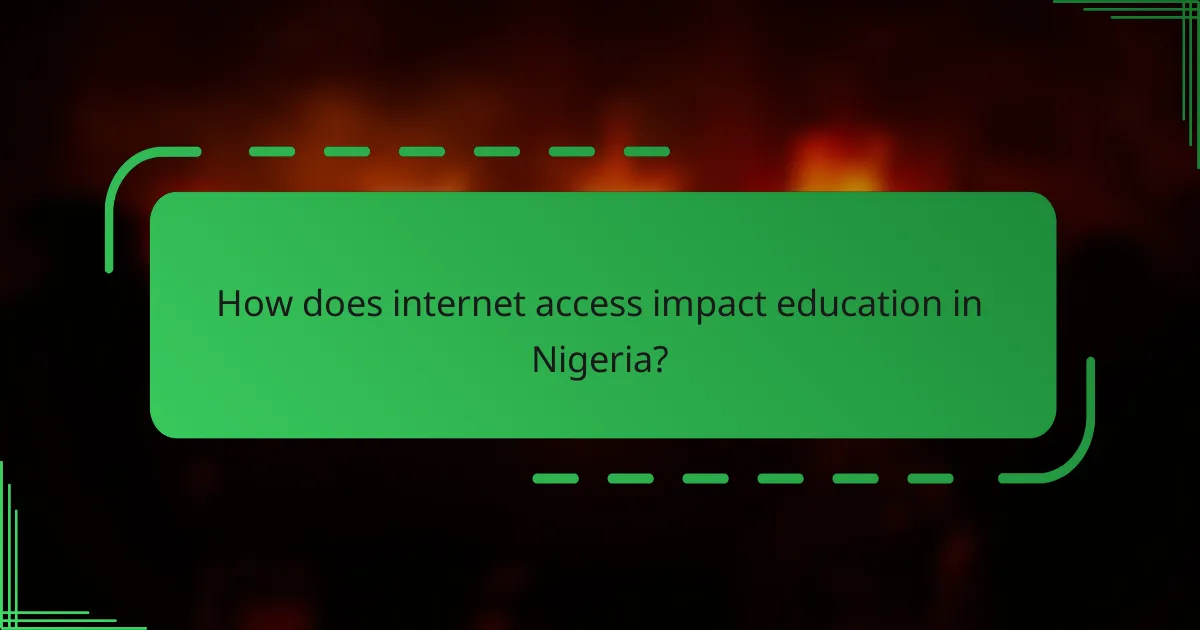
How does internet access impact education in Nigeria?
Internet access significantly enhances education in Nigeria by providing students and educators with essential tools for learning and collaboration. Improved connectivity fosters better educational outcomes, increases access to diverse resources, and facilitates remote learning opportunities.
Improved learning outcomes
Access to the internet can lead to improved learning outcomes for students in Nigeria. With online platforms, students can engage with interactive content, participate in virtual discussions, and receive instant feedback on their work. This dynamic learning environment can enhance comprehension and retention of information.
Moreover, teachers can utilize online training resources to develop their skills and adopt innovative teaching methods. This professional development can translate into more effective classroom practices, ultimately benefiting students’ academic performance.
Access to online resources
The internet provides Nigerian students with access to a vast array of online resources, including e-books, research articles, and educational videos. This wealth of information allows learners to explore subjects in greater depth and encourages independent study. For instance, platforms like Khan Academy and Coursera offer free courses that can supplement traditional education.
Additionally, students can access local and international libraries, enhancing their research capabilities. This access is particularly crucial for students in remote areas where physical libraries may be limited or non-existent.
Remote learning opportunities
Internet connectivity enables remote learning opportunities, which have become increasingly important in Nigeria, especially during disruptions like the COVID-19 pandemic. Online classes allow students to continue their education from home, ensuring that learning is not interrupted.
However, challenges such as inconsistent internet access and lack of digital literacy can hinder the effectiveness of remote learning. Schools and educators should focus on providing training for both teachers and students to maximize the benefits of online education.
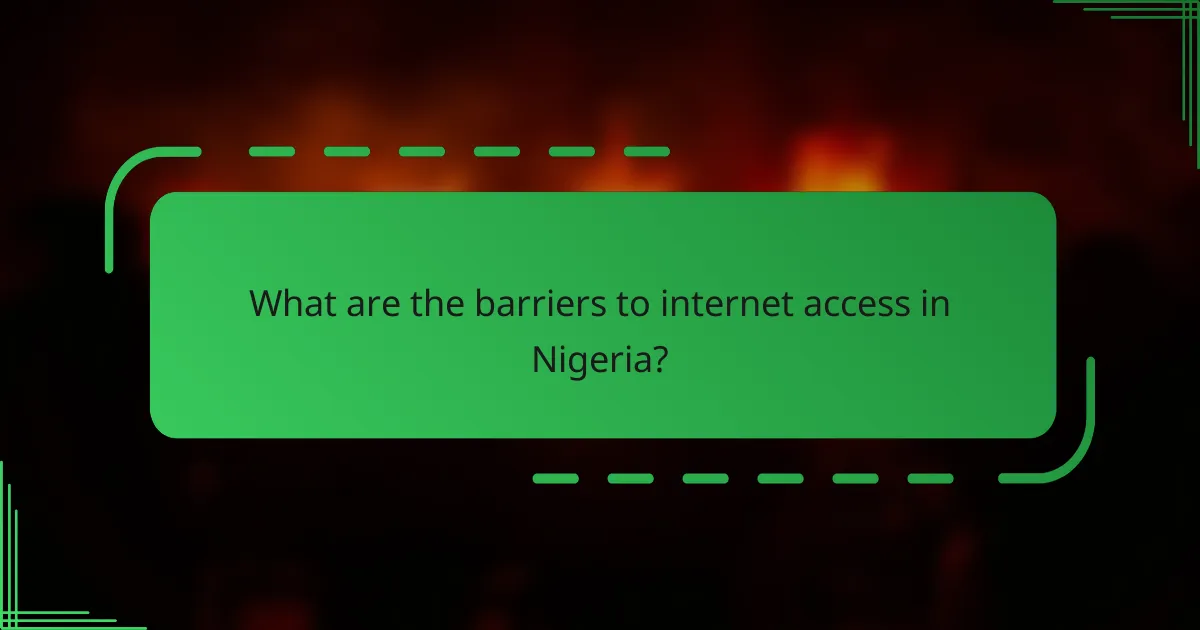
What are the barriers to internet access in Nigeria?
Barriers to internet access in Nigeria include inadequate infrastructure, high costs, and significant geographical disparities. These factors collectively hinder the ability of many Nigerians to connect to the internet, impacting education and digital literacy.
Infrastructure challenges
Nigeria faces considerable infrastructure challenges that limit internet access. Many regions lack reliable electricity and telecommunications infrastructure, making it difficult to establish and maintain internet services.
In urban areas, while some infrastructure exists, it often suffers from congestion and poor maintenance. Rural areas are particularly affected, with many communities lacking basic connectivity options.
Affordability issues
Affordability is a significant barrier to internet access in Nigeria. The cost of internet services can consume a large portion of an average household’s income, especially for low-income families.
Mobile data prices can vary widely, but many users find themselves paying a substantial amount for limited data packages. This financial strain discourages regular use and limits access to educational resources online.
Geographical disparities
Geographical disparities play a crucial role in internet access across Nigeria. Urban centers like Lagos and Abuja enjoy better connectivity compared to rural areas, where access can be minimal or nonexistent.
This uneven distribution of internet services exacerbates educational inequities, as students in remote areas may lack the resources needed for digital learning. Addressing these disparities is essential for improving overall digital literacy in the country.
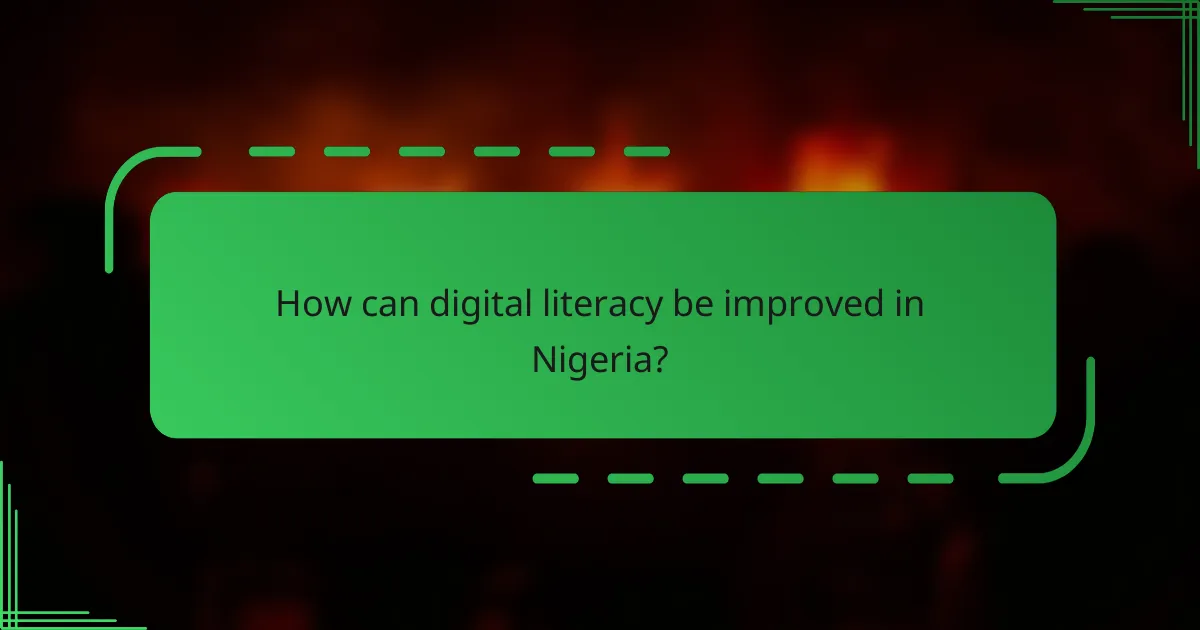
How can digital literacy be improved in Nigeria?
Improving digital literacy in Nigeria requires a multifaceted approach that includes community engagement, educational reforms, and collaboration with technology firms. By focusing on practical skills and access to resources, individuals can become more proficient in using digital tools effectively.
Community training programs
Community training programs can significantly enhance digital literacy by providing hands-on experience and tailored instruction. These initiatives often target specific groups, such as women, youth, or rural populations, ensuring that training is relevant to their needs.
Local organizations can partner with NGOs to offer workshops that cover basic computer skills, internet navigation, and online safety. Regular sessions can help reinforce learning and build a supportive network for participants.
School curriculum integration
Integrating digital literacy into the school curriculum is essential for fostering a tech-savvy generation. Schools should incorporate subjects that teach students how to use digital tools effectively, including coding, data management, and online research skills.
Incorporating project-based learning can further enhance engagement, allowing students to apply their skills in real-world scenarios. Collaboration with educators can ensure that the curriculum remains relevant and up-to-date with technological advancements.
Partnerships with tech companies
Forming partnerships with technology companies can provide valuable resources and expertise to improve digital literacy initiatives. These collaborations can lead to the development of training materials, access to software, and even hardware donations.
Tech companies can also offer mentorship programs, internships, and scholarships to students, creating pathways for careers in technology. Such partnerships can bridge the gap between education and industry, ensuring that learners are equipped with the skills needed in the job market.
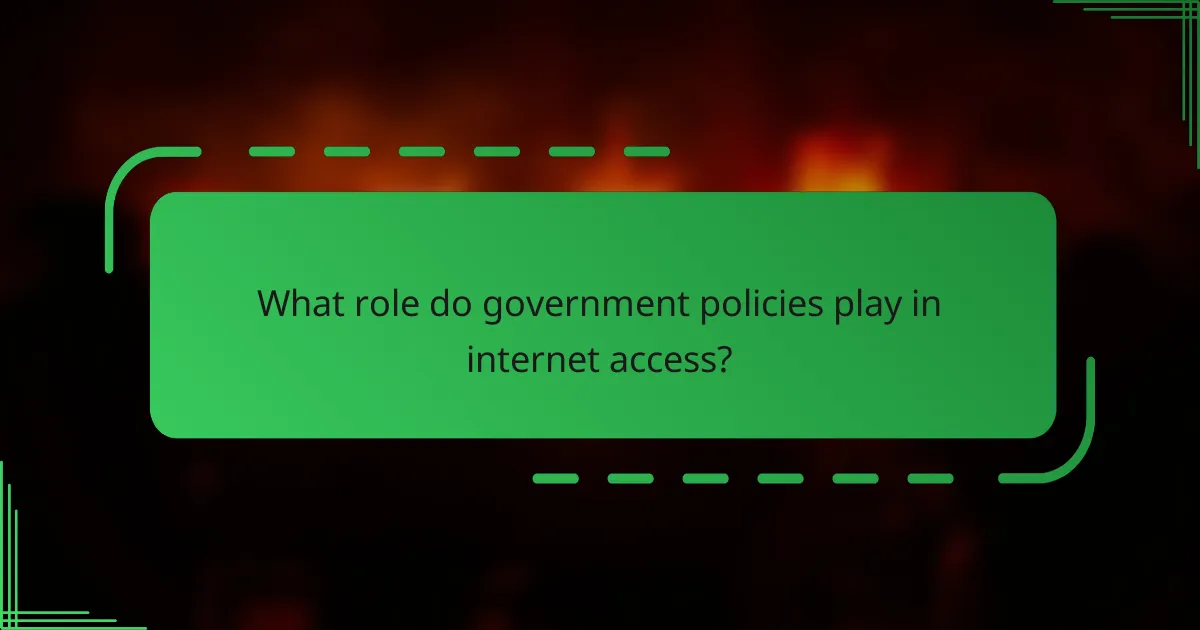
What role do government policies play in internet access?
Government policies significantly influence internet access by establishing regulations, funding infrastructure, and fostering collaborations between public and private sectors. Effective policies can enhance digital literacy and promote equitable access to online resources, particularly in underserved regions.
Regulatory frameworks
Regulatory frameworks set the legal foundation for internet access, determining how services are provided and ensuring fair competition among providers. In Nigeria, the Nigerian Communications Commission (NCC) oversees telecommunications regulations, which include licensing and quality of service standards.
These frameworks can promote consumer protection and encourage investment by creating a predictable environment for businesses. However, overly stringent regulations may stifle innovation and limit service expansion, particularly in rural areas.
Investment in infrastructure
Investment in infrastructure is crucial for expanding internet access, especially in remote and underserved areas. Government initiatives often include funding for broadband expansion projects, which can significantly improve connectivity.
For example, the National Broadband Plan aims to achieve widespread internet coverage by 2025, focusing on both urban and rural regions. Public investment can attract private sector participation, leading to improved services and lower costs for consumers.
Public-private partnerships
Public-private partnerships (PPPs) leverage resources and expertise from both sectors to enhance internet access. These collaborations can facilitate infrastructure development, share risks, and improve service delivery.
In Nigeria, successful PPPs have led to the establishment of community internet access points and mobile broadband initiatives. Such partnerships can help bridge the digital divide by ensuring that underserved populations gain access to essential online services.
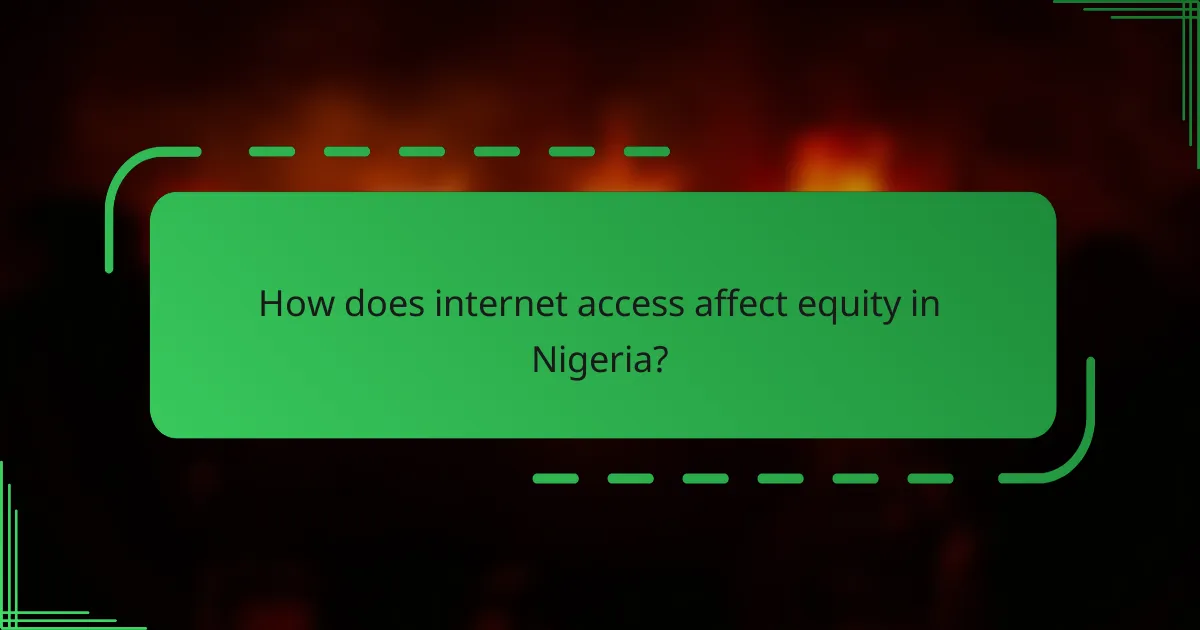
How does internet access affect equity in Nigeria?
Internet access significantly impacts equity in Nigeria by influencing educational opportunities and economic participation. Limited connectivity often exacerbates existing inequalities, particularly between urban and rural areas, hindering access to essential resources and information.
Bridging the urban-rural divide
The disparity in internet access between urban and rural areas in Nigeria creates a significant barrier to equity. Urban centers typically enjoy better infrastructure and higher connectivity rates, while rural communities often struggle with limited or no access. This divide restricts educational resources, job opportunities, and access to government services for those in less connected regions.
To bridge this gap, initiatives such as community internet centers and mobile internet solutions are essential. Programs that provide affordable internet services and training can help rural populations gain the skills needed to utilize online resources effectively.
Empowering marginalized communities
Internet access empowers marginalized communities in Nigeria by providing them with tools for education, advocacy, and economic development. With reliable connectivity, individuals can access online learning platforms, vocational training, and entrepreneurial resources that were previously unavailable.
Additionally, digital literacy programs tailored for these communities can enhance their ability to navigate the internet safely and effectively. By focusing on practical skills and relevant content, these initiatives can help marginalized groups leverage the internet to improve their socio-economic status.
